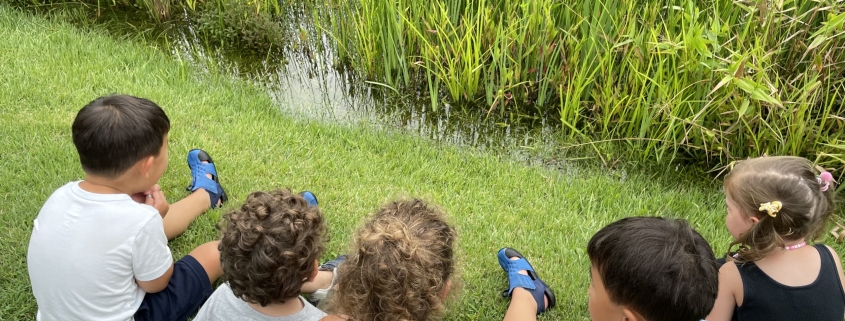Ways To Promote Your Child’s Mental and Emotional Health Every Day
While much of the world has gone back to normal, many of us are still painfully aware of the mental and emotional toll the COVID-19 pandemic had on our children. Hospitals have seen a 24% surge in mental health related emergency room visits for patients ages 5-11 over the last year. One in six US children will have a mental, behavioral, or developmental disorder behavior diagnosed by eight years of age, according to the CDC.
The trends are troubling, but parents hold a lot of power to maintain a healthy, happy household. Beyond providing basic food, clothing, shelter, hygiene, nutrition, a good night’s sleep, and access to education, positive parenting involves routines, quality down-time, and carefully-chosen words.
Enjoy Dinner Together
With busy work, school, and sports schedules, it can be difficult to coordinate a time where everyone is available for dinner. It can be all too easy to switch on the television while eating or rush through the meal to get to another activity. However, the benefits of quality family dinner time are well-researched.
Kids who cook with their parents consume more fruits, vegetables, and healthy foods. Hands-on cooking activities help children develop skills, independence, problem-solving techniques, and self-confidence. You’re promoting fine motor skills, hand-eye coordination, and creativity, while spending screen-free time together.
The National Center on Addiction and Substance Abuse at Columbia University compared teens who ate dinner with their parents less than twice a week with those who had family dinner 5-7 days a week. Eating with the family correlated with teens who were 4x less likely to smoke, 2.5x less likely to use drugs, and half as likely to drink alcohol. This group was more likely to achieve better grades and half as likely to require treatment for depression, anxiety, or other emotional problems.
At dinner time, ask your child about friends, social events, school learning, current events, and issues of concern. Play games like “I Spy” or try these fun family dinner conversation starters. After dinner, give your child an important role to play – whether it’s the dish-rinser, counter-wiper, table-cleaner, or floor-sweeper. After all, one 25-year study found that the biggest predictor for the success of young adults in their mid-20s was whether they participated in household chores in early childhood.
Play Games That Teach About Emotions
Children learn so much through play. Emotional regulation, social cues, and body management are all teachable through games. They may seem silly to you, but young children find them memorable and enjoyable.
- Are you feeling more like a star fish or like a tornado? Managing internal energy stores is a big component of self-regulation. Help your child recognize their own energy levels by periodically asking this question throughout the day. Reinforce that your child can always try to use a calming skill or ask an adult for help when they’re feeling like a tornado. If you’re playing in the morning and your child is feeling peaceful as a starfish, you might say, “It sounds like a great time to snuggle and watch cartoons!” If your child is feeling like a tornado, you might say, “How many times can you run up and down the stairs in one minute?” or “How high can you bounce this ball to release that energy?”
- What can you spy with your binocular eyes? On a trip to the playground, teach your child to slow down, observe, pick up on social cues, and choose how to behave. Hold your fingers like circles and pretend to peer through binoculars, while sharing details about what you see. “I see a girl who looks worried at the top of the slide,” you might say, or “I see there’s room on the swings.” When your child sees someone hurt or sad, there may be an opportunity for an intervention. If your child sees that the swings are occupied, perhaps the slide is a better alternative.
- What would you like to do tonight? Start a tradition where, one night a week, your family takes turns planning a fun night. This could include which dinner to have, what movie to watch, what game to play, or what theme to celebrate. Create a score card of social-emotional skills like “Waiting my turn,” “Staying calm when doing something I don’t like,” “Trying something new,” “Sharing attention,” or “Using my words to share how I feel,” or “Making a thoughtful decision.” Have everyone rate themselves and talk about what is working well and what could use improvement.
Put Down Your Phone
According to researchers at Wharton and Drexel universities, it’s not the number of hours you spend with your children each day that predicts your child’s physical and emotional health; it’s how present you are. Your child knows when you’re stressed out, too busy, and mentally preoccupied.
Thirty minutes of focused, undistracted attention is better than 60 minutes of sitting with your child while surfing social media or checking work emails. When you need to respond to an urgent message, explain to your child why you’re on a device. You might say, “I need 15 minutes to send a few emails and then we’ll go outside and play soccer.”
The question of what to do in this time spent together is subjective, but you might try:
- Getting down on the floor and playing what your child loves, whether it’s dolls, Legos, or a tea party.
- Play old-school favorites like Mr. Fox, Hide-and-Seek, Peek-a-Boo, or Red-Light Green-Light.
- Have a dance party with upbeat music you and your child love. If you’ve got a party light, even better.
- Go outside with your child. Hike, bike, kick the soccer ball, toss a football or frisbee, draw with chalk.
- Play classic board games like Trouble, Clue Jr, Connect 4, Candyland, Life, or Guess Who.
- Rough and tumble play – wrestling, building forts, pillow-fighting, and battling imaginary villains.
- Start a family hobby like Yoga, Knitting, Scrapbooking, Science, Magic, or a Musical Instrument.
- Grab a bowl of popcorn, a blanket, and a movie. Here’s a list of 100 movies to see before kids grow up.
Positivity and Praise
Positivity and praise sets a strong foundation for your child to develop self-love. Praise shouldn’t be dealt out lightly and you’ll want to choose your words wisely. Avoid comparing your child to others, praising innate good looks or talent, and praising achievement. Instead, praise the process and the things your child can control – like effort, persistence, patience, focus, listening skills, attention to detail, or attitude.
Self-esteem begins at home. Build positivity and praise into each day:
- Hug your child and say “I love you so much” to start the day off right.
- Catch your child being good at least three times a day.
- Praise people skills: “You’re such a good helper!” or “You were sharing so nicely.”
- Praise effort: “Wow, you were so patient!” “You never gave up!” “You really tried your best.”
- Be specific: “I love how you colored in the lines,” or “What a beautiful combination of colors you chose.”
- Remark upon kind behaviors and say, “Let’s talk about what kind of person you chose to be right now.”
- Tell someone else about something positive your child said or did – and let them overhear you.
Life won’t always be full of praiseworthy moments, but you can use words of encouragement to get through the most trying times. For instance, if your child is upset trying to tie shoelaces, you could say, “Ah, laces are so tricky! But I love how you’re sticking with it, even though it’s hard. You’ll get it if you keep practicing. Your fingers will get stronger and you’ll remember it better each time.”
Check-In Before Bed Each Night
Set aside as much time as possible for evening rejuvenation. When your child resists with, “I have to go to bed now?!” gently remind, “No, I just want to spend some time with you.” Allow your child a little play time in a bubble bath. Prepare a small snack or drink to enjoy with a couple books. When that’s all through, you’re your child a good 10 or 15 minutes of your complete, undivided attention, along with a snuggle.
Try these conversation starters:
“What emotions did you feel today?” or “Is there anything you want to share that’s difficult to say?”
Simply asking “how are you” often fails to elicit the response we’re looking for – instead getting a “fine,” “okay,” or “good.” Similarly, asking “what’s wrong” is likely to get an abject “nothing” or an “I don’t know.” Framing the question to focus on emotions is more likely to conjure up stories from the day where your child felt proud, excited, worried, or frustrated. By asking about feelings, you’re showing your child it’s okay to trust and confide in you. You’re showing empathy. If your child does open up, listen without judgement. Resist the urge to “fix it” or give unsolicited advice. Try saying, “I’m so sorry you’re going through that. I am here for you. I love you.” Ask questions like, “What did you do?” or “Did you know I had a time where I felt like that too?”
“What happened today that made you smile, laugh, or feel happy?” or “What were you grateful for?”
Avoid asking a “yes” or “no” question. This open-ended inquiry shows your child you care about his or her day. There may not always be an answer, but you’ll be glad you asked on those days where your child is brimming with joyful stories. It’s a great follow-up after talking about the more difficult parts of the day and a reminder that a few bad moments don’t necessarily make for a bad day or life. While half of what makes us happy is rooted in our DNA, another 40% comes from intentional activity – from taking the time to reflect and practice gratitude. If you are religious, you may consider weaving a prayer into your evening routine.
Plan Something Special.
There’s a lot in this article to consider. We’re not advising that your drop all obligations and let the world revolve around your child. A few key moments over the course of the day can go a long way. Maybe you’ll just have short 10 minutes bursts or 30 minutes of uninterrupted time in a day to really give your all. The fact that you’ve read this far shows that you’re trying your best and you truly care about the wellbeing of your offspring.
Maybe you didn’t have as much time as you would have liked today, but you can always plan ahead. If you’re looking for additional ways to connect with your child and support mental health in the future, consider one of Shine’s fun camps, workshops, classes, virtual craft sessions, field trips, or parties. Our ongoing, year-round programming provides East End families with enriching experiences that build memories for years to come. Contact us for details about current availability.



